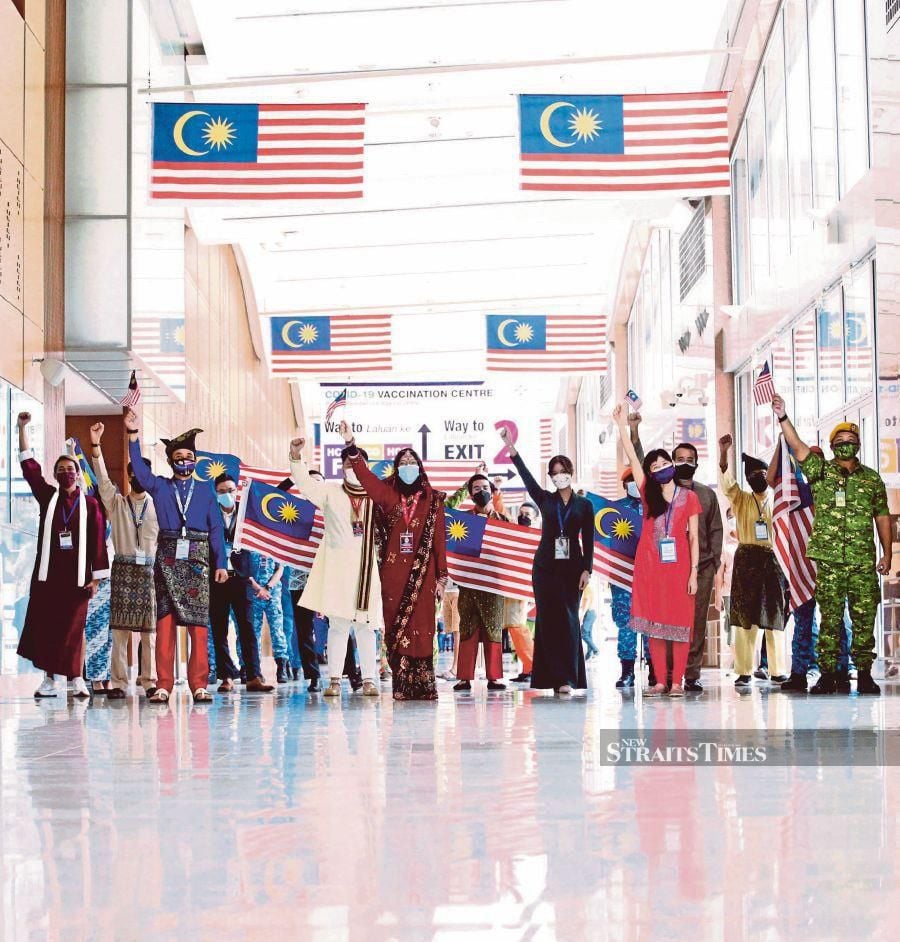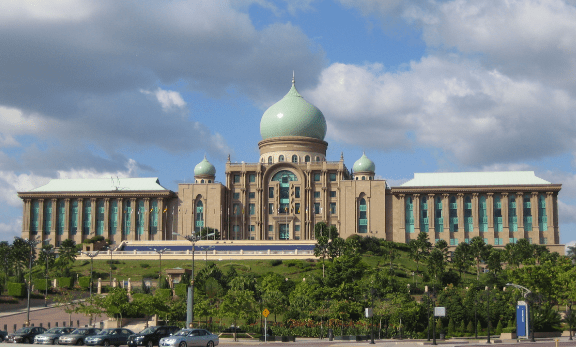
Published in Astro Awani, New Straits Time & AsiaNewsToday,, image by New Straits Times.
It is relatively normal for people the world over to anticipate the new year with a fresh start. Salary increments, bigger bonuses, new holiday destinations, latest gadgets, etc. have been the typical expectations year in, year out.
However, the emergence of new Covid-19 variants such as Deltacron – a combination of the Delta and Omicron variants – and Florona (when a patient contracts both Covid-19 and Influenza) in some parts of the world has triggered fresh jitteriness and new rounds of uncertainty.
Since November last year, the World Health Organization (WHO) has been warning of the threat that Omicron poses, i.e., a “very high” global risk. True enough, Omicron had spread very rapidly – affecting at least 128 countries. Although it could be less deadly, research reveals that the Omicron variant is about two to three times more transmissible than Delta, at the very least.
Health Minister Khairy Jamaluddin had warned that there would be a high likelihood of over 30,000 Covid-19 cases in Malaysia per day by the end of March if there are no tight measures to control the virus spread.
As of January 6, Malaysia detected 245 Omicron cases of which 233 were imported cases and the remaining 12 belonged to local transmissions. Out of the total number of reported Omicron cases, 157 cases or 64.08% involved umrah pilgrims.
To curb the spread of the Covid-19 Omicron variant, Health Minister Khairy Jamaluddin immediately introduced a temporary suspension of umrah travels to Saudi Arabia, with effect from January 8.
Additionally, sales for flight and bus tickets between Singapore and Malaysia were put on hold from December 23, 2021 to January 20, 2022 – weighing down on any glimmer of hope among airline and bus operators who were keen to recover from the economic losses over the past two years of the pandemic.
With a reduction in capacity and ticket sales for vaccinated travel lanes (VTL) land travel into Singapore or Malaysia by half from January 21, 2022, many Malaysians in the island republic could not reunite with their families back home for the upcoming Chinese New Year (CNY) celebration in February once again despite more than two years of separation.
Therefore, the possibility of new variants such as Deltacron and Florona continue to pose serious uncertainties among hard-hit sectors such as hospitality and tourism. There is still a possibility of the resumption of stringent travel restrictions and tightened Covid-19 testing rules, full border closures and extensive quarantine measures in certain countries in 2022.
Notwithstanding, the current administration is trying to accelerate the rollout of booster shots by shortening the interval for receiving Pfizer and AstraZeneca vaccinations from six to only three months.
However, it might not be sustainable in the long run.
Whenever there are new variants, citizens might have to take booster shots at least twice a year to protect themselves against Covid-19.
Nevertheless, some citizens chose not to receive booster shots as they worry that frequent vaccinations within short intervals would overload their immune systems.
The European Medicines Agency (EMA) cautioned recently that repeating booster doses every four months might eventually lead to fatigue in the population.
Furthermore, Fitch Solutions Country Risk & Industry Research revealed on January 12 that both retail sales and consumer confidence indices are still struggling to resume back to the pre-pandemic levels.
Comparing January and September 2021 to the same period of 2019, retail sales remain at 1.2%.
Moreover, rising consumer price inflation would potentially erode purchasing power among Malaysians – leading to a drastic drop in consumer spending.
Such a scenario is already reflected in Malaysia’s annual inflation rate – from 2.9% in October to 3.3% in November 2021.
Among all goods and services, price rose faster for transport (12.7% in November 2021 vs 11.3% in October 2021), followed by housing (3.4% vs 3.2%), food (2.7% vs 1.9%), household equipment and routine maintenance (2.6% vs 2.1%), restaurants & hotels (0.9% vs 0.6%).
Also, main ingredients such as vegetables, poultry, eggs and other food items are becoming more expensive.
The price of vegetables had witnessed a 200 per cent increase; the price of chicken rose from RM8 to RM10 per kg; the price of grade A eggs had been pushed up from RM10 to RM12 a tray.
As mentioned in an EMIR Research article, as operating costs ranging from salaries of employees, rent and utility charges become relatively higher than before, coffee shop owners and small- and medium-sized enterprise (SME) owners, in general, are not motivated to hire local workers under the current climate. Local workers will demand higher monthly salaries than foreign workers as they still have car and housing loans, for instance, to pay off.
Continuous rising cost of ingredients and operating costs during recent months have left coffee shop owners with no other alternative – but to, e.g., increase the price of beverages by 60 sen the most from the beginning of the year onwards. Some restaurants and food stalls also shrank their serving portions with fewer ingredients.
As more money is required to spend on essential items (i.e., food, water, transport and shelter), the hardcore poor and B40 households in the urban areas, in particular, would find it difficult to cope with rising living costs. Unlike rural citizens who still could earn their living through farming, urban citizens are relatively vulnerable in securing jobs with decent pay during such uncertain times.
The Department of Statistics Malaysia (DOSM) revealed that the number of unemployed in November 2021 has reduced to below 700,000 persons for the first time – the lowest since April 2020.
Nonetheless, DOSM’s definition of employed persons includes those working just one hour a week and who may be unpaid workers in a family enterprise/setting (time-related). The problem of underemployment also comes in whereby some of them had to work in low-skilled, low-income jobs that do not match their qualifications (skills-related).
Hence, it is still too early to say whether Malaysia could achieve economic growth of between 5.5% and 6.5% in 2022, based on the Ministry of Finance (MoF)’s projection.
While ordinary citizens and small business owners are finding ways to recover from the Covid-19 pandemic, society also has to deal with unexpected losses from environmental disasters.
From the deadly incidents such as that which occurred in the Tambun landslide, floods in the Yan district and the flooding in eight Malaysian states, the adverse effects of climate change – more extreme weather patterns than usual – are becoming more real and concerning.
The flash floods in Kelantan, Terengganu, Pahang, Perak, Negeri Sembilan, Melaka, Kuala Lumpur and Selangor that happened in mid-December last year have devastated homes, vehicles, livestock, farms, farming, equipment, etc. and with that comes the financial losses and worries.
As such, residents who were left with flood-damaged houses, vehicles, furniture and electrical appliances were rendered helpless from the double whammy of the on-going Covid-19 crisis affecting livelihoods and now the flood disaster.
Yet, a rather lacklustre attitude from the current administration had slowed down the momentum of the search and rescue mission. The government were accused of not activating relief effort immediately. Residents were not even provided the necessary financial assistance instantly.
It remains to be seen whether the flood victims will translate their frustration at the current administration into votes for an opposition coalition in the upcoming 15th general election (GE15) – which could happen either before or after the end of the Memorandum of Understanding (MoU) period in July 2022.
The MoU was signed between current Prime Minister Ismail Sabri Yaakob’s administration and Pakatan Harapan (PH) in September 2021. Parti Warisan (Warisan), Parti Pejuang Tanah Air (Pejuang) and the Malaysian United Democratic Alliance (Muda) did not follow suit.
Newly-formed Parti Bangsa Malaysia (PBM), which was rebranded from the Sarawak Workers Party, expressed its preference to join BN. Whether BN would accept ex-DAP, ex-PKR and ex-Bersatu assemblymen and MPs from PBM to fight together in GE15 is unknown yet.
Indeed, Umno’s and Gabungan Parti Sarawak (GPS)’s landslide victory in the Melaka and Sarawak state elections, respectively, during the past two months has bolstered the former party’s confidence in calling for GE15. If that happens before August 21, Dato’ Sri Ismail Sabri would be the shortest-serving PM than his predecessor Tan Sri Muhyiddin Yassin, who only served for 17 months.
It is arguable that the voting behaviour of new voters, particularly those from the Undi18 bloc (i.e., age 18 to 20) during GE15, cannot be pre-determined.
An additional 5.8 million voters will enter the electoral scene. Out of the 5.8 million new voters, approximately 1.2 million are from the Undi18 bloc, while the rest are 21 years old and above.
But the rakyat need not despair.
Instead, 2022 should be seen as a crucial year for the rakyat to fulfil their civic duty by voting for the candidate who could deliver constituency work, transforming their lives for the better.
Not least, 2022 is also the year that perhaps we can optimistically look forward to the brand new politics of hope – with the political realignments and configurations lately – that would usher in and is a harbinger of a Better Malaysia.
Amanda Yeo is Research Analyst at EMIR Research, an independent think tank focused on strategic policy recommendations based on rigorous research.

